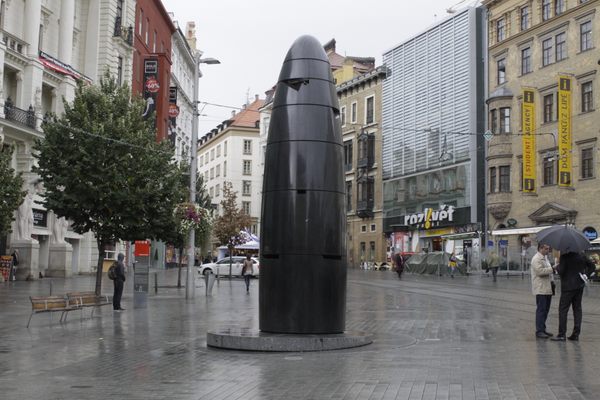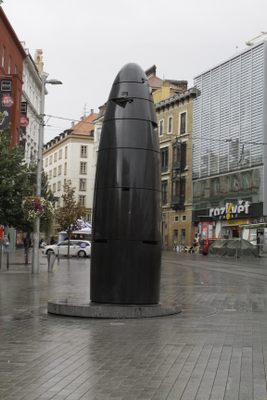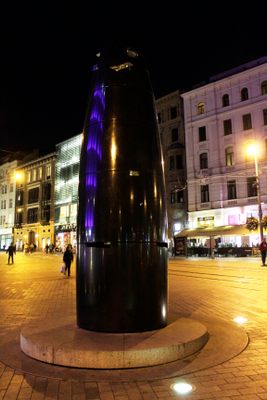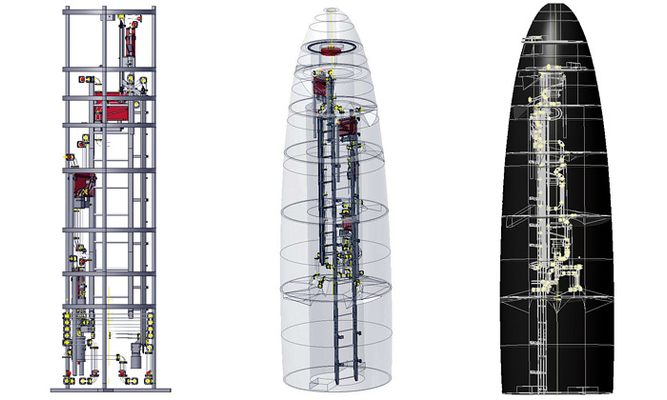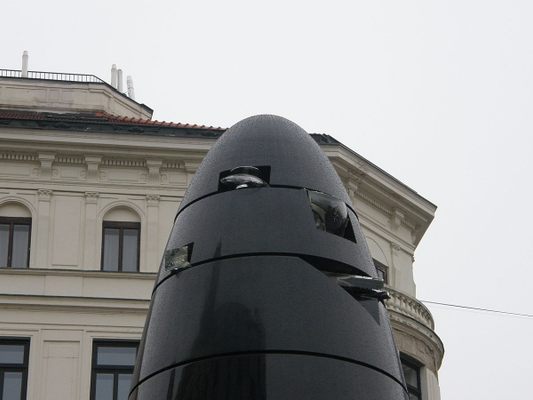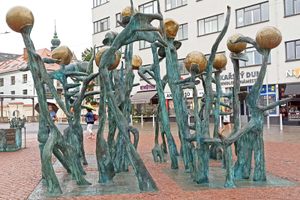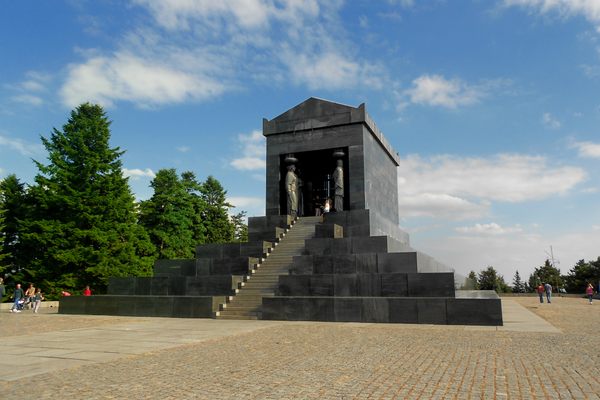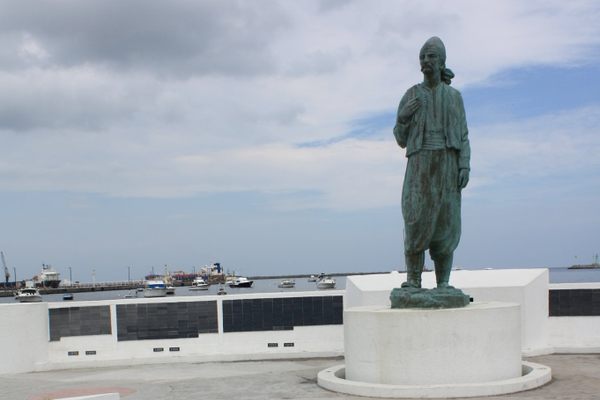About
In 1645, near the last stage of the Thirty Years’ War, the city of Brno became famous across Europe when it managed to thwart a siege by the previously undefeated Swedish army, thanks in part to a little bit of timekeeping trickery.
The Swedes laid siege to the city for nearly three months, but the citizens of Brno would not surrender. Facing a stalemate, the Swedish general said he would withdraw if the city did not fall by noon, so the local people of Brno decided to turn the clock to read noon an hour early, at 11 o’clock. The general kept his word, and the Swedes packed their weapons and turned home.
To commemorate this historic victory, the Brno Astronomical Clock monument was erected near náměstí Svobody (Freedom Square) in the city center. At 11 o’clock every day, the shiny black marble obelisk (meant to resemble a bullet, though the phallic shape bears a controversial resemblance to something else...) releases a stream of glass marbles—the color of the city’s coat of arms—that spectators gather around to catch and keep as a souvenir. The noon bell at the local cathedral still rings an hour early every day.
Related Tags
Community Contributors
Added By
Edited By
Published
October 25, 2016
